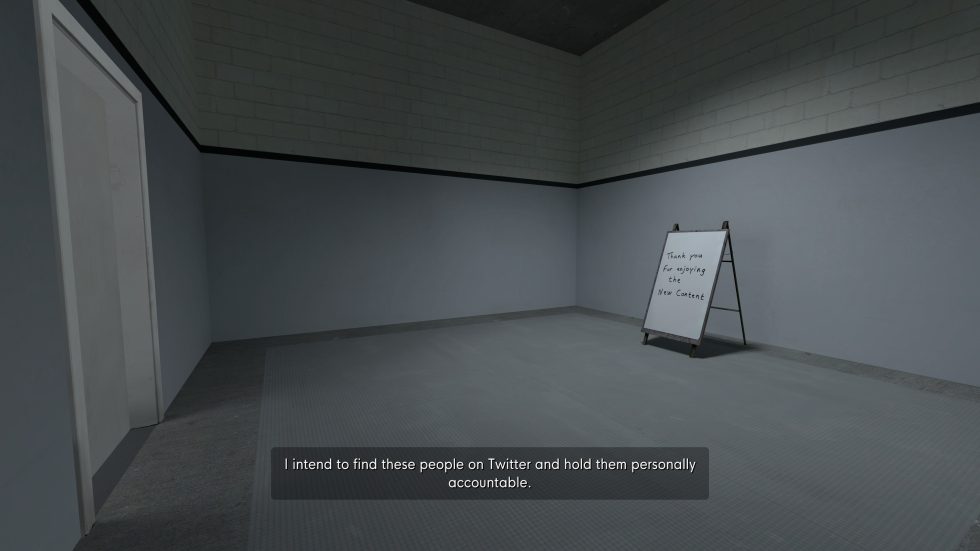
Crows Crows Crows
Eleven years after its debut as a Half-Life mod, The Stanley Parable remains one of the most interesting and divisive video games of the early ’10s. However players may have felt about that mod or its 2013 standalone Steam launch, it was at least a very unique comedy game.
My 2013 review of the Steam version was mostly glowing. It came from a younger Sam Machkovech, a writer still surprised and delighted by concepts in video games like second-person narrative and ludonarrative dissonance.

Crows Crows Crows
The Stanley Parable, like many other games of its era, explored the illusion of “choice” in video games. Yet TSP stood out. While the “would you kindly” twist in that era’s BioShock was meant to heighten the drama, TSP landed in a dark comedy realm. Its script and progression held some similarities to games like Spec Ops: The Line, but unlike its peers, TSP‘s tendency to surprise players persisted even after they were clued in to the central joke: that their choices were meaningless. Its humor was as much about novelty as it was about taking the momentum out of other games’ spins on the concept.
At this point, that comedic well has run dry, right? What else can The Stanley Parable possibly deliver to gamers in 2022, whether they’ve already played the original to completion or missed the game in its first go-round?
Forgive me for a brief second-person aside

Crows Crows Crows
Sam Machkovech stared at the headline he’d written, one meant to answer this very question. “Review: Stanley Parable: Ultra Deluxe is a mandatory game for comedy fans,” he read to himself. He read both colons aloud as the word “colon” and sighed. “Two colons in a headline,” he said. “We try not to do that at Ars Technica.”
Sam began to type more words, using the second-person narrative conceit that made the original Stanley Parable game so memorable. “Are people still amused by this?” he asked himself, visibly annoyed that his internal dialogue had bled into the review. Perhaps this isn’t helpful to anyone trying to decide whether to spend $24.99 on a new game launching today on Windows, Mac, Linux, Xbox, PlayStation, and Switch—especially those who didn’t play the original games or read the original review and thus didn’t realize that he was lifting the whole “narrator talks about you to you” schtick of the game.

Crows Crows Crows
Or maybe it is useful! Maybe by reading Sam’s interpretation of the concept, Ars Technica’s audience could get a spoiler-free taste of this follow-up game, which includes both old and new content. Sam Machkovech has seen his fair share of complaints about having surprises ruined before someone plays a game or sees a film. “No spoilers,” Sam said aloud to himself in a high-pitched register, perhaps sarcastically.
Sam moved forward with the gimmick, which he believed would charm anyone who enjoyed the original yet would function as a warning for anyone uneasy about dark-comedy visual novels.
Then he read the above paragraph and shook his head. “No, choosing to disobey the narrator is one of the most fun things to do in both the original Stanley Parable and this new follow-up. I should follow suit.”








